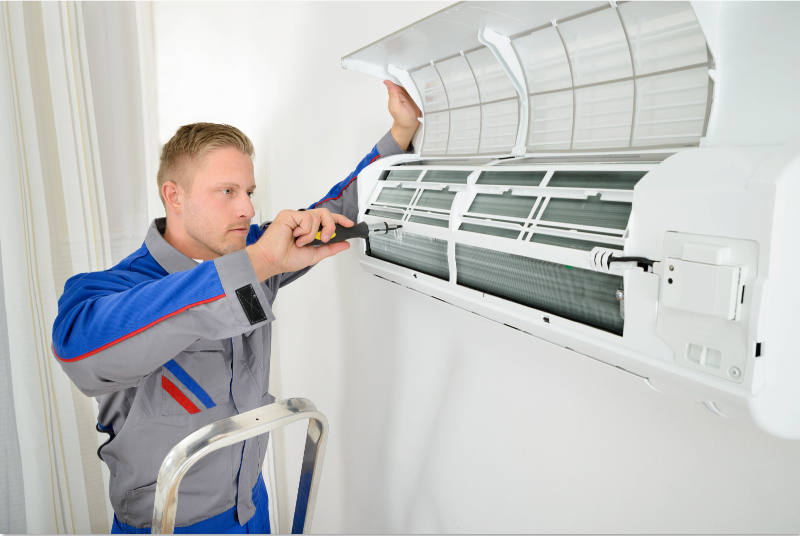In today’s society, energy savings is a significant concern for homeowners and commercial entities alike. AC company of the most significant areas to save energy is through heating, ventilation, and air conditioning systems. If you are aiming to lower your energy bills or improve the comfort of your home or workplace, grasping the principles of HVAC stands as vital.
This beginner’s guide will examine the concept of HVAC and its functioning, offering you the knowledge needed to handle common HVAC problems and care for your system efficiently. This guide will cover strategies for boosting energy efficiency, from selecting the right HVAC system to optimizing thermostat settings for each season. Participate as we explore the strategies that can help you reduce costs while ensuring a pleasant environment year-round.
Grasping HVAC
Heating, Ventilation, and Air Conditioning, an acronym for HVAC, plays a crucial role in ensuring ideal interior settings. It includes a variety of systems that control temperature, moisture, and indoor air quality in home and commercial spaces. These systems work together to produce a harmonious atmosphere, ensuring that the heat is evenly spread during colder seasons and that cold air moves during the hotter months.
The operation of an HVAC setup can be divided into three primary elements: heating, airflow, and climate control. Heating systems, such as furnaces and heating pumps, create heat, while air conditioning units reduce air temperature to offer coolness in heat. Ventilation is the activity of exchanging air within a space to remove moisture, odors, and pathogens, thereby boosting indoor air quality. Grasping how these components operates enables property owners and businesses tailor their HVAC systems to address their individual demands.
When considering an HVAC setup, aspects like energy efficiency, cost, and the scale of the area must be taken into account. Modern HVAC units are increasingly manufactured with efficiency-enhancing features that reduce both environmental impact and bills for utilities. The latest innovations, such as intelligent climate controls and zoned heating and cooling, offer homeowners more command over their heating and cooling, emphasizing the need to stay informed about possible selections and progress in the sector. This knowledge can lead to improved comfort and significant financial benefits over time.
Enhancing Energy Conservation
To maximize energy efficiency in your HVAC system, begin by making sure that it is appropriately sized for your home. An oversized system can lead to short cycling, where the system cycles frequently, using up energy and resulting in wear and tear. Conversely, an insufficient system may struggle to keep pleasant temperatures, leading to increased run times and higher energy bills. Talk to a HVAC expert to assess the correct size for your HVAC system based on your home’s square footage, insulation, and other factors.

Routine maintenance is key to ensuring your HVAC system running effectively. Set up seasonal maintenance to service components, check coolant levels, and swap out filters as needed. Dirty filters can restrict airflow and make your system struggle, which increases energy consumption. Additionally, ensuring that coils and fans are free of debris can help improve airflow and efficiency, which in turn reducing your energy costs and prolonging the duration of your equipment.
Add smart technology into your HVAC system for improved energy conservation. Advanced thermostats allow you to set heating and cooling schedules based on your daily routine, ensuring that energy is not spent unnecessarily when you're not home. They can also become familiar with your preferences over time and change settings without your input for optimal comfort. Moreover, consider zoning systems that allow you to heat and cool individual zones of your residence separately, providing enhanced temperature control and more reducing your energy bills.
Maintaining Your HVAC System
Ongoing maintenance of your HVAC system is vital to ensure optimal performance and longevity. Begin by checking and replacing air filters every 1-3 months, as contaminated filters can obstruct airflow, reducing the efficiency of the system and leading to higher energy costs. Additionally, maintain the area around your outdoor unit unobstructed of debris such as leaves, grass clippings, and snow to guarantee proper airflow and operation.
Seasonal inspections are necessary for maintaining the efficiency of your HVAC system. Schedule a professional inspection at least one time a year, best in spring for air conditioning units and fall for heating systems. During these inspections, a technician can maintain components, check for refrigerant leaks, and ensure all electrical connections are tight. This proactive approach not just extends the life of your system but can also stop costly repairs down the line.
Furthermore, homeowners should be watchful for any warning signs that could indicate a need for repair. Pay attention to strange noises, rising energy bills, or inconsistent temperatures throughout your home. Addressing these issues quickly can save you from more extensive problems and help maintain a comfortable indoor environment. By following regular maintenance and keeping up to date about your system’s performance, you can enjoy efficient heating and cooling for many years to come.
